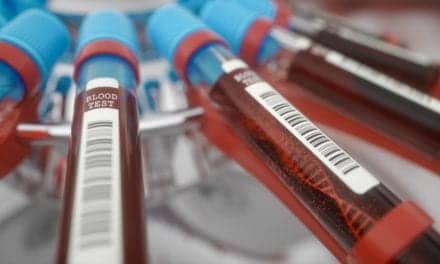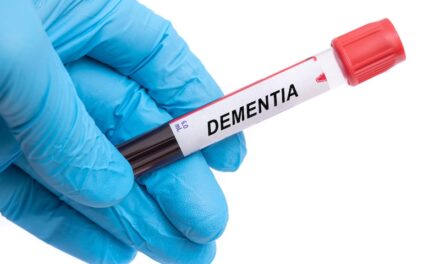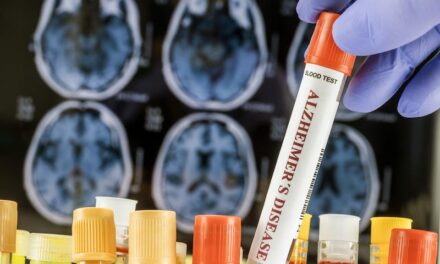Measuring a key blood molecule may help doctors diagnose whether or how much impaired blood flow to a patient’s brain is contributing to dementia or cognitive problems, according to a new study led by a UCLA Health researcher.
Cerebral small vessel disease, a common disease marked by damage to the cells lining the blood vessels in the brain, is a major driver of cognitive problems and dementia in older adults. However, it can be difficult for doctors to determine whether a patient’s cognitive impairments stem predominately from Alzheimer’s disease or vascular problems, the two most common causes of dementia. Doctors typically rely on MRIs or CAT scans to detect evidence of brain injury to help make that determination, but a certain amount of guesswork is involved.
Further reading: Circulating Cell-Free Genomic DNA May Be Early Sign of Dementia
New research published in Alzheimer’s & Dementia: The Journal of the Alzheimer’s Association found that patients with higher levels of placental growth factor (PlGF)—a key molecule involved in the formation of new blood vessels, or angiogenesis—were more likely to have cognitive impairment or evidence of brain injury.
“Historically, diagnostic studies for cognitive impairment and dementia have been limited to structural brain imaging, but increasingly there’s a recognition that we can use the bloodstream as an available but imperfect tool to understand who maximally benefits from those structural and functional imaging tools,” says UCLA Associate Professor and Vice Chair of Research in Neurology Jason Hinman, MD, PhD, the study’s lead author. “It may also tell us who might be the best candidates for some of the really new emerging drugs that are available on the market to treat cognitive impairment and dementia.”
Cognitive Impairment Study
The study represents some of the first validation results reported by a NIH-funded consortium of academic medical centers working to identify biomarkers associated with vascular drivers behind cognitive impairment to help inform diagnosis and treatment. The consortium, known as MarkVCID, was formed in 2016 after researchers recognized they needed a better handle on precisely how vascular brain injury was contributing to dementia.
Researchers identified signaling involved in angiogenesis as potential biomarkers, theorizing that the body may respond to damaged small blood vessels in the brain with intensified efforts to grow more. For this study, researchers focused on just one of those signals, PlGF, which has previously been associated with cerebral blood flow regulation. Data also gathered by the consortium had suggested this may be a useful biomarker for identifying patients with cognitive impairment and dementia due to vascular brain injury.
At UCLA and four other research sites, 335 patients underwent brain imaging, cognitive testing and blood collection. Researchers found those in the top quartile for PlGF measurement were three times as likely to have cognitive impairment or dementia compared to those in the bottom quartile. Every unit increase in total PlGF in the bloodstream was also associated with a 22% increase in the likelihood of having cognitive impairment and a 16% increase in the likelihood of having imaging evidence of cerebral small vessel disease.
“The addition of a blood-based biomarker that is associated with the traditional measures of vascular injury could allow a provider to be able to distinguish the patient that has Alzheimer’s-predominant dementia versus a significant vascular contribution,” Hinman says. “Right now it’s kind of the clinician’s best guess. This work can directly inform this diagnostic decision.”
The research consortium is still studying whether PlGF and a bundle of other angiogenic markers in the bloodstream could help predict the risk of future cognitive decline. Patients interested in enrolling in ongoing studies at UCLA can learn more and register here.
Other study authors include Fanny Elahi, Davis Chong, Hannah Radabaugh, Adam Ferguson, Pauline Maillard, Jeffrey F, Thompson, Gary A. Rosenberg, Abhay Sagare, Abhay Moghekar, Hanzhang Lu, Tiffany Lee, Donna Wilcock, Claudia L. Satizabal, Russell Tracy, Sudha Seshadri, Kristin Schwab, Karl Helmer, Herpreet Singh, Pia Kivisäkk, Steve Greenberg, Charlie DeCarli, and Joel Kramer.





